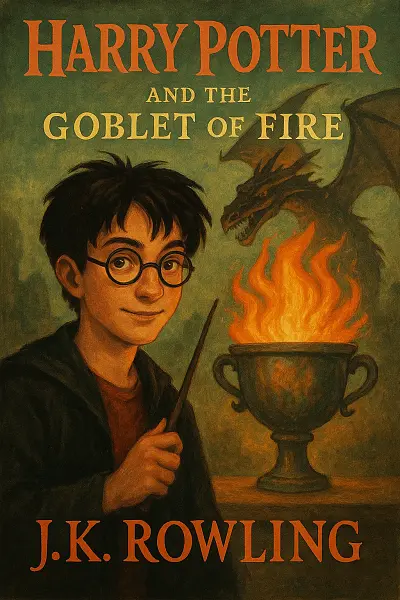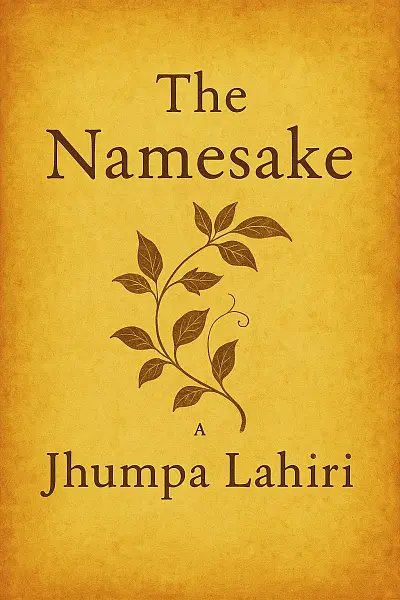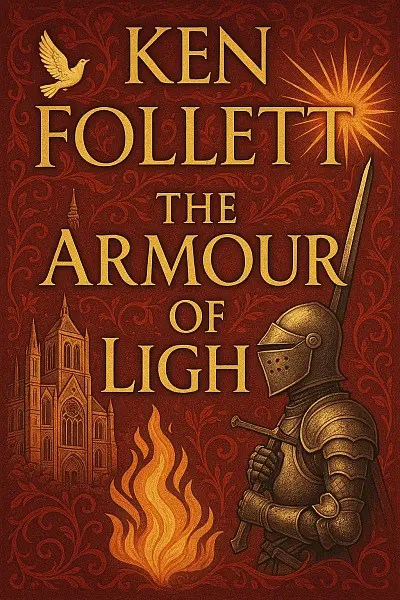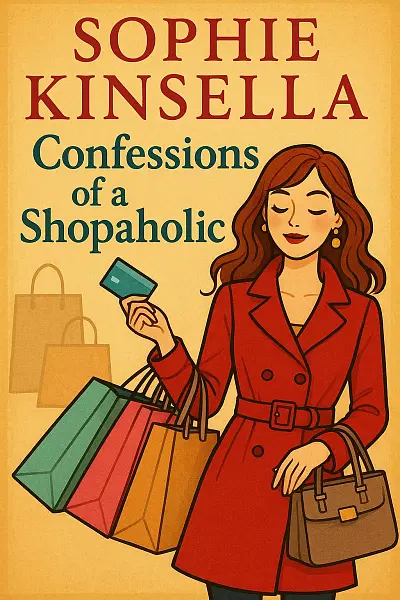
Confessions of a Shopaholic
by: Sophie Kinsella
Becky Bloomwood lives it up in London, soaking in the glamour of her stylish neighborhood and enviable wardrobe—even though her bank balance can’t keep up. Her job as a financial journalist barely covers the bills, leaving her one bad shopping spree away from disaster.
But when a pile of red-inked bank letters turns impossible to dodge, Becky is jolted into a frantic quest to fix her finances… or at least hide from them. Her attempts at self-control are hilariously doomed, making her question what she really wants—and what all those new shoes are really costing her.
Will Becky find a way to be happy without the thrill of retail therapy? Kinsella spins the whole thing with sparkling wit and warmth, bringing genuine heart to Becky’s stylishly messy life.
"Sometimes, the things we chase most desperately are the very things we need to let go of to find ourselves."
Let's Break This Down
The Author's Voice
Atmosphere
Upbeat, breezy, slightly chaotic — this book radiates optimism and lighthearted energy, even when things get messy. London sparkles as a backdrop for Rebecca Bloomwood’s misadventures, balancing the glamour of high-street shops with the very real anxiety of mounting debt. The tone dances between fizzy fun and comedic anxiety, creating a world that feels both dazzling and a little dangerous, but never loses its warmth.
Prose Style
Chatty, witty, and sharply observational. Sophie Kinsella writes in a conversational tone that’s totally inviting, often letting you peek directly into Becky’s inner monologue. Expect quick-fire sentences, playful turns of phrase, clever self-deprecation, and heaps of British charm. Emotional highs and lows are delivered with a wink, and the everyday becomes comic gold under Kinsella’s touch.
Pacing
Brisk, energetic, occasionally breathless. There’s a real sense of forward momentum—Becky’s dilemmas pile up fast, and the narrative rarely lingers. The story zips between shopping splurges, awkward encounters, and escalating woes, yet still manages to give space for swoony romance and moments of self-reflection. If you love quick-moving plots that rarely pause for breath, this one will keep you flipping pages.
Dialogue
Snappy, realistic, and full of personality. The banter sparkles, especially between Becky and her friends (or adversaries). Kinsella knows how to use dialogue to reveal quirks, escalate tension, and deliver punch-lines. You’ll hear Becky’s unique voice loud and clear, often stumbling hilariously into honest, embarrassing, or heartfelt confessions.
Mood and Feel
This is classic escapist fun—irresistibly relatable, filled with laughs, but not afraid to touch on anxiety and vulnerability. You’ll feel the rush of a shopping spree and the pangs of regret just as acutely as the heroine does. It’s a bubbly, charming vibe where even the rough patches have a silver lining.
Structure
Mostly linear, told in first-person, giving you direct access to Becky’s thoughts and justifications (sometimes outrageous, always entertaining). Short chapters mean you’ll probably tell yourself “just one more,” several times in a row.
Overall Vibe
Light, fizzy, and absolutely addictive—like a perfect guilty pleasure that’s both more thoughtful and more heartfelt than it first appears. If you love modern British rom-coms and imperfect heroines, you’ll instantly tune into the rhythm of Kinsella’s writing!
Key Moments
-
Maxed-out credit cards, maxed-out chaos—Becky’s shopping addiction collides with reality in laugh-out-loud disasters
-
That iconic scarf obsession! Becky's attempt to justify “just one more purchase” is both deliriously funny and cringingly real
-
Luke Brandon’s unexpectedly swoon-worthy appearances—romantic tension that sparkles amid receipts and retail therapy
-
Letters from the bank morph into hilarious, anxiety-induced daydreams you can totally relate to
-
Kinsella’s breezy, confessional voice—like your funniest friend oversharing her wildest secrets over coffee
-
Behind the humor: surprisingly sharp insights into consumer culture and self-worth
Plot Summary
Let’s dive into the world of Becky Bloomwood, a witty financial journalist living in London who, ironically, can’t stop herself from spending money she doesn’t have. Despite her career in finance advice, Becky’s personal finances are a disaster, leading to mounting debts and hilarious attempts to dodge bank managers and collection letters. The plot thickens when Becky tries a series of schemes—from economizing (which never works) to attempting get-rich-quick ventures—that all hilariously backfire. The turning point arrives when her financial mess is publicly exposed, forcing her to confront her problem and finally seek help. In the end, Becky owns up to her situation, mends relationships, and even begins a romance with Luke Brandon, suggesting genuine growth and a hopeful, yet realistic, fresh start.
Character Analysis
-
Becky Bloomwood is charming, clever, and deeply flawed—her struggle with compulsive shopping masks insecurities and a longing for validation. Through a roller-coaster of comic misadventures, she gradually confronts her denial, becoming more honest with herself and those she cares about.
-
Luke Brandon, initially Becky’s foil as a no-nonsense financier, evolves into a supportive and understanding partner who appreciates her creativity and vulnerability, even as he challenges her to change.
-
Supporting characters, like Becky’s best friend Suze, ground her, offering both comic relief and heartfelt support, while also highlighting Becky’s journey from self-delusion to self-awareness.
Major Themes
-
Consumerism & Materialism: The novel lampoons modern society’s obsession with buying happiness, as Becky’s shopping addiction spirals out of control. Kinsella uses Becky’s inner monologue and failed strategies to critique the emotional emptiness underlying compulsive spending.
-
Denial & Personal Growth: Becky is an expert at rationalizing her poor choices, but true progress is only possible when she confronts reality—a shift that forms the book’s emotional core.
-
Love & Friendship: Authentic connections—like Becky’s growing relationship with Luke and steadfast friendship with Suze—offer support systems, enabling her to confront her issues and ultimately mature.
Literary Techniques & Style
Kinsella’s writing sparkles with breezy, first-person narration—full of wit, sarcasm, and pitch-perfect comedic timing. Letters and bills from the bank act as a clever recurring motif, illustrating Becky’s predicament while adding humor. Vivid metaphors and self-deprecating asides make Becky relatable, even when she’s making terrible decisions. The novel’s episodic structure, with escalating mishaps, maintains a brisk, energetic pace, mirroring Becky’s frantic mindset.
Historical/Cultural Context
Set in early 2000s London, the story taps into a culture of easy credit and aspirational consumerism, as young professionals chase lifestyles beyond their means. The rise of fashion magazines, celebrity culture, and designer labels color both the backdrop and Becky’s personal aspirations, making her struggles both timely and universal.
Critical Significance & Impact
Confessions of a Shopaholic struck a chord for its sly satirical take on credit card culture and its blend of humor and heart. It helped define the "chick lit" genre, inspiring numerous imitators and a film adaptation. Decades later, its cautionary-yet-lighthearted look at spending and self-acceptance remains surprisingly relevant—offering both entertainment and subtle social commentary.
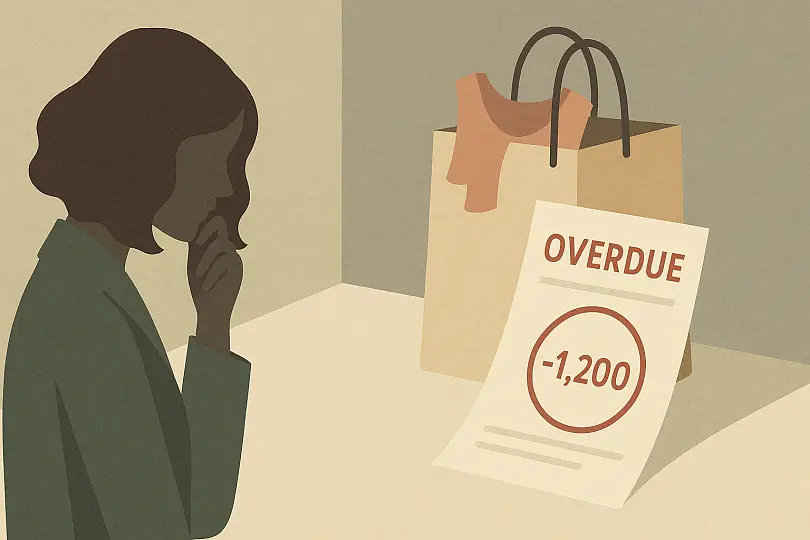
When debt meets desire—a hilarious spin on retail therapy gone wild
What Readers Are Saying
Right for You If
If you’re a fan of fun, lighthearted rom-coms with plenty of humor and a sprinkle of romance, Confessions of a Shopaholic is totally your jam. Seriously, if you’ve ever laughed at your own questionable spending habits or just love getting lost in a main character’s mess (and eventual glow-up), you’re going to vibe with Becky’s adventures.
- Chick-lit lovers and anyone who adores quirky, relatable heroines—think Bridget Jones or Meg Cabot fans—will feel right at home here.
- If you need a break from heavier reads and want something breezy and feel-good that you can zip through in a weekend, this one’s perfect for you.
- Anyone who loves stories about messy friendships, adorable love interests, and personal growth (plus a hefty dose of retail therapy humor) will have a blast with this book.
But, real talk—if you’re not into stories where the main character makes questionable life choices over and over (and can be kind of, well, oblivious), you might get frustrated. People looking for deep literary themes or super intricate plots might want to skip this one—it’s very much fluff and fun, not highbrow or super serious. Also, if satire about materialism isn’t your thing, or you can’t handle a bit of secondhand embarrassment, maybe dodge it.
Bottom line: If you’re after a totally entertaining, laugh-out-loud escape, this is your book. But if you’re looking for something deep and philosophical, you’ll probably want to look elsewhere.
What You're Getting Into
Ever felt like your shopping habits might be spiraling out of control?
Meet Rebecca Bloomwood, a witty financial journalist in London whose love for trendy shops wildly outpaces her bank balance. Juggling hilarious spending sprees, mounting bills, and a not-so-glamorous day job, Rebecca's journey is a delightful whirlwind of fashion, friendship, and her quest to get her life—and credit cards—under control.
If you love laugh-out-loud romantic comedies with a dash of real-life chaos, this one’s an absolute must!
Characters You'll Meet
-
Rebecca "Becky" Bloomwood: The lovable, shopaholic protagonist whose compulsive shopping habits create chaos in her personal and professional life. Her journey is a hilarious and heartfelt exploration of learning self-control and discovering what truly matters.
-
Luke Brandon: Successful, charming PR entrepreneur who becomes Becky's love interest. His grounded, pragmatic attitude serves as a counterbalance to Becky’s impulsiveness, pushing her toward personal growth.
-
Suze Cleath-Stuart: Becky's loyal best friend and flatmate, always offering emotional support and encouragement. Suze’s unwavering friendship is one of Becky’s anchors throughout all her misadventures.
-
Tarquin Cleath-Stuart: Suze’s eccentric but sweetly awkward cousin, whose well-meaning overtures add a quirky layer to Becky’s social circle. His subplot brings comic relief and gentle satire of upper-class quirks.
-
Derek Smeath: The persistent, no-nonsense bank manager chasing Becky for her mounting debts. He’s both a source of anxiety and a catalyst for Becky to finally confront her problems.
More Like This
If you found yourself zipping through Bridget Jones's Diary by Helen Fielding, you'll absolutely vibe with the madcap energy and lovable flaws of Rebecca Bloomwood. While Bridget juggles career hiccups and hilarious romantic disasters, Becky’s wild shopping sprees and financial entanglements bring that same blend of wit, heart, and laugh-out-loud predicaments—both starring heroines who stumble their way toward self-discovery, all delivered with a sparkling British charm.
Reminiscent of The Devil Wears Prada by Lauren Weisberger, Kinsella’s Confessions of a Shopaholic taps into the world of consumerism and urban ambition, but with a lighter, more comedic touch. Where Prada’s Andy faces the cutthroat realities of high fashion, Becky’s escapades center around her irresistible (and relatable) urge to own more than her wallet allows, poking fun at the sometimes absurd pressures to keep up appearances.
There’s a definite Sex and the City vibe running through these pages—craving designer labels, setting scenes in chic London, and mixing friendship with romance in a whirlwind of misadventures. The show’s playful take on personal dilemmas and the pursuit of happiness in a stylish city feels echoed here, providing that same fizzy mix of fashion, floundering, and friendship, making it impossible not to root for Becky as she tries (and hilariously fails) to have it all.
Critic's Corner
Is self-deception ever truly harmless, or does it always gather interest like an unpaid bill? Confessions of a Shopaholic thrusts this question into a shimmering, high-stakes world of fantasy spending and denial, cleverly exposing the thin seams that separate aspiration from reality. Sophie Kinsella’s beloved debut doesn’t just chronicle the comic misadventures of Becky Bloomwood as she flees her mounting debts; it’s at once a sparkling romantic comedy and a barbed social satire, asking what it costs—not just in pounds, but to the soul—to keep up appearances.
Kinsella’s writing crackles with wit and brisk, contemporary energy. Her sentences swing between Becky’s breathless excitement in a designer boutique and her mortified panic when the bills arrive, often in a single page. The choice to narrate entirely through Becky’s irrepressible voice creates a kind of comic intimacy: we’re drawn deep into her anxious rationalizations, making each disastrous purchase oddly addictive. The language is full of financial jargon that’s playfully repurposed—turning terms like “investment” or “asset” into the punchlines of everyday chaos. Kinsella’s pacing is tight; chapters end on cliffhangers or punchy revelations, pulling the reader through the story with the compulsive tug of a shopping spree. Yet, this breeziness can veer into repetition—some scenes feel formulaic, as Becky faces similar predicaments with only minor variations, risking a sense of déjà vu.
Beneath the fizzy humor, Kinsella deftly interrogates consumerism as identity. Becky’s struggles echo the anxieties of a generation raised to believe that success and happiness come with a price tag—often one they can’t afford. The novel pokes fun at financial illiteracy, but also captures the emotional hollowness that can come from equating self-worth with material possessions. Kinsella situates Becky’s escapism in the context of contemporary urban life, where loneliness often drives compulsive behavior. The book anticipates conversations about debt, Instagram-era overspending, and the fraudulent glamour of social media several years before those topics entered mainstream discourse. Yet, the story occasionally oversimplifies Becky’s predicament, wrapping emotional and financial complexities in a bow that might feel too neat for readers craving deeper realism.
Contextually, Confessions of a Shopaholic stands as a defining entry in the “chick lit” canon, drawing clear lineage from Bridget Jones but distinguished by its laser focus on class and commercialism. Kinsella reinvigorates the romantic comedy with a sharper, more contemporary edge that resonates far beyond its original early-2000s context. Within her own oeuvre, it remains the gold standard: no subsequent Becky adventure quite rivals the freshness of her debt-riddled debut.
Strengths:
- Effortless, laugh-out-loud humor
- A voice that feels both maddening and utterly endearing
- Incisive, timely themes about debt and self-deception
Weaknesses:
- Occasional narrative repetition
- Resolution may ring too convenient
In sum: Confessions of a Shopaholic dazzles with style and substance—a compulsively readable tale that still feels alarmingly relevant, even as its heroine’s fantasies teeter on the brink of collapse.
Community Thoughts
I honestly didn’t think I’d relate to Becky, but suddenly my online cart was full and I was justifying every single thing. This book is dangerous in the most hilarious way!
okay so becky bloomwood just crawled into my brain, maxed out my mental credit card, and left me laughing and anxious at the same time. her shopping logic is wild and kinda relatable in the worst way possible
i still think about Becky’s disastrous TV interview and her wild panic, like, HOW did she keep talking? My heart was racing. I could NOT stop reading after that, even though I desperately needed sleep.
Becky Bloomwood’s wild shopping sprees had me laughing out loud, but also low-key worrying about my own wallet. Her panic at credit card bills is too real and that scarf scene? ICONIC.
i still hear Becky’s wild justifications in my head every time I walk past a sale. That scarf scene? Absolute mayhem. My wallet hides when I open this book.
Leave Your Review
Local Take
Why It Matters
Confessions of a Shopaholic by Sophie Kinsella strikes a unique chord with readers in Japan, where consumer culture has its own quirks and complexities.
- Parallels: The book’s obsession with branded goods echoes Japan’s “bubble era” of the late 1980s and early ’90s, when luxury spending symbolized social mobility. Readers feel nostalgia—and sometimes a cringe—toward the materialism Rebecca embodies.
- Cultural Clashes & Alignment: While Japanese society values appearances and omotenashi (thoughtful presentation), it often prizes restraint over open excess. Becky’s impulsive shopping and candid confessions both fascinate and bewilder, as public displays of financial struggle are often taboo here.
- Plot Resonance: The pressure to “keep up” hits differently given Japan’s societal expectations for conformity and modesty; Becky’s escapades act as both a fantasy escape and a mirror to silent anxieties about debt and status.
- Literary Echoes: Kinsella’s witty, accessible style stands apart from Japan’s deeply introspective, often minimalist fiction, making the novel refreshing, if distinctly Western, in tone and substance.
Food for Thought
Notable Achievement / Cultural Impact
-
Confessions of a Shopaholic kicked off an international bestselling series, captivating millions of readers worldwide and sparking a renewed interest in the "chick lit" genre.
-
The story resonated so widely that it was adapted into a major Hollywood film, solidifying Becky Bloomwood as an iconic and relatable character for fans struggling with consumer culture and personal finance—definitely a testament to its lasting pop culture influence!
Like what you see? Share it with other readers



